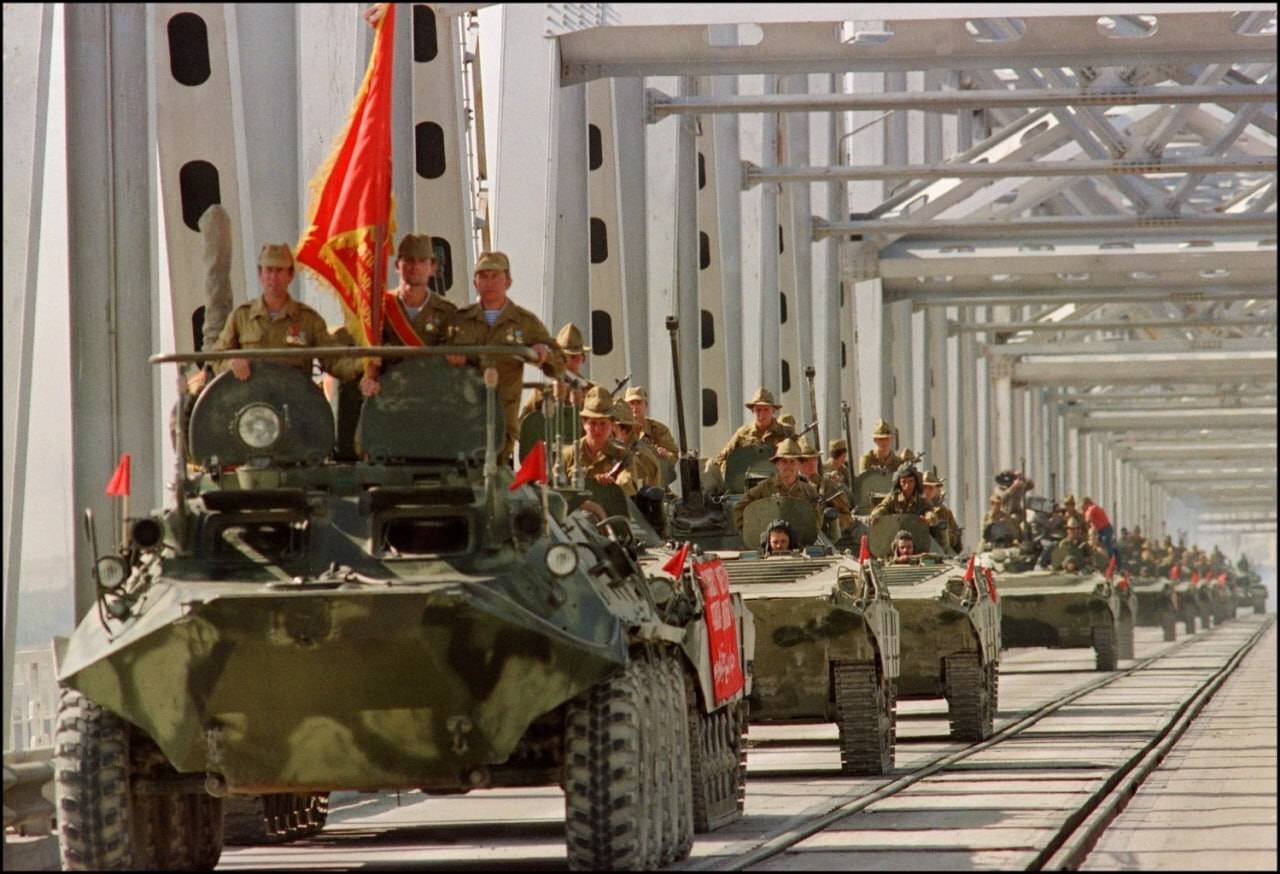Imam Khomeini's two predictions about Afghanistan came true

TEHRAN- The final and complete withdrawal of Soviet troops from Afghanistan began on 15 May 1988 and ended on 15 February 1989 under the leadership of Colonel-General Boris Gromov.
More than eight years after they intervened in Afghanistan to support the pro-communist government, Soviet troops begin their withdrawal. The event marked the beginning of the end to a long, bloody, and fruitless Soviet occupation of Afghanistan.
We ask a question that why did the Soviet Union invade Afghanistan in 1979?
In 1919, the year Afghans won independence to conduct their own foreign policy, the Soviet Union became the first country to establish diplomatic relations with Afghanistan—which, in turn, was one of the first to formally recognize the Bolshevik government. From the early 19th century onward, Afghanistan became a geopolitical pawn in what came to be known as “The Great Game” between the empires of Tsarist Russia and Great Britain. Fearful that Tsarist Russia’s expansion into Central Asia would bring it perilously close to the border of India, their imperial jewel, Britain fought three wars in Afghanistan to maintain a buffer against Russian encroachment.
By 1979, Afghanistan, a faltering country, provided another chance for the USSR to militarily enforce the Brezhnev doctrine. Failing to act, leaders realized, might call into question Soviet willingness to uphold other regimes on its side of the so-called “Iron Curtain,” the physical and ideological border dividing the USSR from the rest of Europe after World War II.
Afghanistan’s chaos alarmed Soviet leadership primarily because it increased the odds that Afghan leaders might turn to the United States for help. Top Politburo members warned Brezhnev in late October 1979 that Hafizullah Amin sought to pursue a more “balanced policy” and that the United States was detecting “the possibility of a change in the political line of Afghanistan.”
In the fall of 1979, revolutionary Hafizullah Amin orchestrated an internal PDPA coup that killed the party’s first leader and ushered in his brief, but brutal reign. National unrest soared, and Moscow’s hand-wringing intensified.
Moscow feared growing U.S. involvement.
The 1979 invasion triggered a brutal, nine-year civil war and contributed significantly to the USSR’s later collapse. On Christmas Eve 1979, the Soviet Union began an invasion of Afghanistan. The Soviets organized a massive military airlift into Kabul, involving an estimated 280 transport aircraft and three divisions of almost 8,500 men each. First, it air-dropped elite troops into principal Afghan cities. Soon after, it deployed motorized divisions across the border. Within days, the KGB, which had infiltrated the Afghan presidential palace, poisoned the president and his ministers, helping launch a Moscow-backed coup to install a new puppet leader, Babrak Karmal. The invasion triggered a brutal, nine-year-long Afghan civil war.
Within a few days, the Soviets had secured Kabul, deploying a special assault unit against Tajberg Palace. Elements of the Afghan army loyal to Hafizullah Amin put up a fierce, but brief resistance.
By the time the last Soviet troops pulled out in early 1989, rumbling back across the ironically named “Friendship Bridge,” the conflict had cost the lives of an estimated 1 million civilians and some 125,000 Afghan, Soviet and other combatants. The war wreaked havoc not only on Afghanistan but on the Soviet Union, whose economy and national prestige took a severe drubbing.
By 1988, the Soviets decided to extricate themselves from the situation. Russian leader Mikhail Gorbachev saw the Afghan intervention as an increasing drain on the Soviet economy, and the Russian people were tired of a war that many Westerners referred to as “Russia’s Vietnam.”
This disgraceful failure was predicted by Imam Khomeini. We will see what he said:
Imam Khomeini, who was always one of the main supporters of the Afghan people against the invasion of the Soviet Red Army in Afghanistan and who had predicted the defeat of the Soviet Red Army before the Soviet forces invaded Afghanistan, said this about his meeting with the Soviet ambassador: "The day when the Soviet ambassador came to me, he said that the Afghan government wanted the Soviets send troops there, I told him that this is a mistake that the Soviets are making. Of course, the Soviet government can occupy Afghanistan, but it can’t settle there. If you have imagined that you can take Afghanistan and pacify it, this is a false dream. If you go and any other power also goes, it will take there but it can’t calm it down and finally it will fail." (Book of the Imam; Vol. 12, p. 215)
In a message was sent by Imam Khomeini to the visitants of Baitullah Al-Haram, the Imam in 1366, expressed his regret that the Soviet Union didn't act on his warning and said: "I regret that the Soviet Union didn't pay attention to my warning about Afghanistan and attacked this Islamic country. I have said many times and now I warn you to leave the Afghan people alone. The people of Afghanistan determine their own destiny and guarantee their real independence, and they don't need the "Kremlin" patronage or the American guardianship, and they certainly won't submit to another rule after the departure of foreign military forces from their country, and they won't follow America's way if they intend to interfere and invade. In their country, they will break it." (Book of the Imam; Vol. 20, p. 317)
We don’t forget when the U.S. attacked Afghanistan and had a long war there, from 2001 to 2021. It tried to control Afghanistan, but it failed. Despite killing hundreds of thousands of Afghans and spending hundreds of billions of dollars, it lost the war and left the country in disgrace.
Leave a Comment